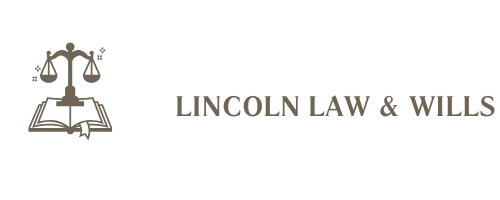Property law is a fundamental aspect of our legal system that governs the rights and responsibilities associated with various types of property. Whether it’s real estate, personal belongings, or intangible assets such as intellectual property, understanding property law is crucial for individuals and businesses alike. In this article, we will delve into the key concepts and applications of property law, exploring its importance and providing insights into different types of property law.
Introduction to Property Law
Property law plays a significant role in our society, providing a framework for establishing and protecting ownership rights. It encompasses a wide range of legal principles and regulations that aim to govern the use, transfer, and ownership of property. By understanding property law, individuals can navigate complex transactions, resolve disputes, and ensure their rights are adequately safeguarded.
The Importance of Property Law
Property law serves as the foundation for economic stability and social order. It provides individuals and businesses with the confidence and security necessary to invest, develop, and utilize property. Without a robust property law system, disputes over ownership, possession, and use of property would likely ensue, leading to chaos and uncertainty.
Imagine a world where property rights were not protected. People would constantly be in fear of losing their homes, businesses, or personal belongings. The ability to own and control property is fundamental to our society’s functioning, allowing individuals to build wealth, create businesses, and establish a sense of stability.
Furthermore, property law ensures fairness in society by outlining the rights and responsibilities associated with property ownership. It establishes guidelines for resolving conflicts and balancing competing interests, enabling individuals and communities to coexist harmoniously.
For example, property zoning regulations help maintain a balance between residential and commercial areas, preventing the construction of a noisy factory next to a peaceful neighborhood. Property law also protects the rights of tenants, ensuring they are not unfairly evicted or subjected to unreasonable rent increases.

Basic Definitions in Property Law
Before delving into the intricacies of property law, it is essential to understand a few basic definitions. In the realm of property law, property refers to anything that can be owned. It can be tangible, such as land, buildings, and personal belongings, or intangible, like patents, copyrights, and trademarks.
Ownership is the legal right to possess, use, and transfer property. Possession, on the other hand, refers to physical control over property. It is possible for ownership and possession to be held by different individuals or entities, resulting in complex legal scenarios.
Let’s consider a scenario where a person owns a piece of land but leases it to another party for agricultural purposes. In this case, the owner retains the ownership rights, while the lessee has possession and use rights for a specified period. This arrangement highlights the distinction between ownership and possession in property law.
Additionally, property law recognizes various forms of ownership, such as sole ownership, joint ownership, and co-ownership. Sole ownership refers to an individual having exclusive rights over a property, while joint ownership involves multiple individuals sharing ownership rights. Co-ownership, on the other hand, typically refers to a situation where multiple parties collectively own a property, such as in the case of a condominium or cooperative housing.
Understanding these basic definitions is crucial for comprehending the complexities of property law. As we delve deeper into this fascinating field, we will explore the various legal principles and concepts that govern property rights, transactions, and disputes.
Different Types of Property Law
Property law encompasses several distinct areas, each dealing with specific types of property. Understanding these different branches allows us to explore the nuances and implications of property law more comprehensively.
When delving into the realm of property law, it becomes apparent that there are various facets that require attention. Real property law, also known as real estate law, governs the rights and obligations associated with land, buildings, and other fixtures attached to the land. It involves aspects such as property purchase and sale, property development, land use regulations, and property disputes. Read more about development at https://www.uky.edu/AS/Courses/GEO260/glossary_development.html
In the fascinating world of real property law, ownership is typically transferred via deeds, which serve as legal instruments to convey the rights and interests in a property. These deeds provide a tangible representation of ownership and are often recorded in public records to ensure transparency and establish a clear chain of title. Additionally, the use of real property is often subject to legal restrictions imposed by local governments or homeowner associations, ensuring that communities maintain a certain aesthetic or adhere to specific guidelines.
Real estate transactions, which are a vital part of real property law, can involve various legal instruments and agreements. Mortgages, for example, allow individuals to finance the purchase of property by borrowing money from a lender, using the property itself as collateral. Easements, on the other hand, grant individuals the right to use another person’s land for a specific purpose, such as accessing a nearby beach or using a shared driveway. Lease agreements enable individuals to occupy a property temporarily, providing them with a place to live or conduct business without the need for long-term commitment.
While real property law deals with the tangible aspects of property, personal property law focuses on items that are movable and not permanently attached to land or buildings. This branch of property law encompasses a wide range of tangible assets, including vehicles, furniture, clothing, and electronic devices.
Ownership of personal property is typically established through bills of sale, receipts, or other forms of documentation that serve as evidence of transfer. Unlike real property, personal property can be easily transferred between individuals, making personal property law more dynamic and adaptable. This flexibility allows individuals to buy, sell, or exchange personal belongings with relative ease, contributing to the ever-changing landscape of personal property law.
Lastly, intellectual property law focuses on protecting intangible creations of the human intellect, such as inventions, artistic works, and brand identities. This branch of property law grants exclusive rights to creators and innovators, enabling them to reap the rewards of their creative efforts.
Intellectual property law encompasses areas such as patents, copyrights, trademarks, and trade secrets. Patents protect new inventions and technological advancements, granting inventors the exclusive right to produce, use, and sell their creations. Copyrights safeguard original works of authorship, including literary, artistic, and musical creations, ensuring that creators have control over the reproduction and distribution of their works. Trademarks, on the other hand, protect brand identities, allowing companies to distinguish their products or services from competitors. Lastly, trade secrets safeguard valuable business information, such as formulas, processes, or customer lists, giving companies a competitive edge in the market.
By establishing legal frameworks for the protection and enforcement of intellectual property rights, intellectual property law incentivizes innovation and promotes economic growth. It encourages creators and innovators to invest time, effort, and resources into their creations, knowing that their intellectual property will be safeguarded and rewarded.
Key Concepts in Property Law
Now that we have explored the different types of property law, let’s delve into some key concepts that underpin this field.
In property law, ownership and possession are two fundamental concepts that play a crucial role in defining the rights and responsibilities of individuals or entities. Ownership grants legal rights to property, while possession refers to physical control or occupancy. It is important to note that ownership does not always align with possession, and disputes may arise when these interests conflict.
Understanding the difference between ownership and possession is crucial for resolving legal disputes and determining the rights and responsibilities of parties involved in transactions or disputes. For example, a landlord may own a property but grant possession to a tenant through a lease agreement. In this case, the tenant has possession of the property while the landlord retains ownership. Click here to learn more about responsibilities.
Rights and Responsibilities
Property law establishes the rights and responsibilities associated with property ownership. These rights typically include the right to use, exclude others from using, transfer, and enjoy the property. However, these rights are not absolute and may be limited by other legal principles or regulations.
Ownership comes with responsibilities such as maintaining the property, paying taxes, and complying with applicable laws and regulations. Property owners must also consider the impact of their actions on the rights of others and the broader community. For instance, zoning laws may restrict the use of a property to certain purposes to ensure the well-being of the surrounding neighborhood.
Moreover, property owners have a duty to prevent harm to others. If a property owner fails to maintain their property, resulting in injury to someone else, they may be held liable for negligence. This highlights the importance of balancing property rights with the well-being and safety of others.

Transfers and Transactions
Property law provides mechanisms for transferring ownership or interests in property. These mechanisms may vary depending on the type of property involved. Real property transactions often involve deeds, while personal property may be transferred through bills of sale or other written agreements.
Transfers of property must comply with legal requirements and be properly documented to ensure the validity and enforceability of the transaction. Failure to comply with legal requirements can result in disputes and legal challenges. For example, when purchasing a house, a buyer must ensure that the seller has clear ownership rights and that the transfer of ownership is properly recorded through a deed.
Additionally, property transactions may involve various legal considerations, such as the payment of taxes, the existence of liens or encumbrances on the property, and compliance with local regulations. These factors must be carefully addressed to protect the interests of all parties involved and ensure a smooth transfer of ownership.
Applications of Property Law
Property law finds its application in various real-world scenarios. Let’s explore some common applications of property law.
Buying and Selling Property
One of the most prevalent applications of property law is in the buying and selling of property. Whether it’s purchasing a home, an investment property, or commercial real estate, understanding property law is crucial for navigating the complex process of property transactions.
Buyers and sellers must consider legal requirements, negotiate terms, review contracts, and ensure proper documentation to protect their interests during property transactions. Property law helps establish the legal framework for these transactions, providing clarity and protection for all parties involved.
Renting and Leasing
Property law governs the relationships between landlords and tenants, providing a legal framework for renting and leasing property. It outlines the rights and responsibilities of both parties, ensuring fair and equitable treatment throughout the duration of the lease.
Landlords must comply with rental laws, maintain the property in a habitable condition, address tenant concerns, and respect tenants’ rights to privacy and peaceful enjoyment of the premises. Tenants, in turn, must adhere to lease terms, pay rent on time, and maintain the property in a reasonable manner.
Inheritance and Estate Planning
Property law plays a vital role in inheritance and estate planning. It allows individuals to designate beneficiaries for their property, transfer property to future generations, and ensure their assets are distributed according to their wishes upon their death.
Through proper estate planning, individuals can minimize potential disputes and tax liabilities, protect their assets, and provide for their loved ones. Property law provides the legal framework for these important decisions and ensures their enforceability.
In conclusion, understanding property law is essential for navigating the complexities of property ownership, use, and transactions. By grasping the key concepts and applications of property law, individuals and businesses can protect their interests, resolve disputes, and make informed decisions regarding property matters. Whether you are buying a house, launching a business, or looking to secure your intellectual creations, property law provides the legal framework necessary for a fair and orderly society.
Other resources: Top Reasons to Hire the Best Property Lawyers
